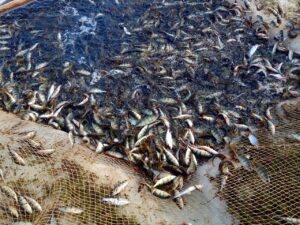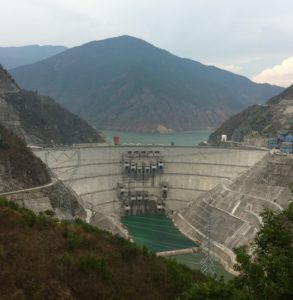This essay is part of a series by leaders and members of ACRE on efforts to increase climate resilience. Views expressed are the author’s.
A community is only as strong as its weakest link. In many communities, climate change is placing increasing strain on those links. The Alliance for National and Community Resilience (ANCR) was founded to help provide communities with tools that support a holistic understanding of their current resilience and opportunities to improve. ANCR identified 19 links or community functions that make communities great places to live and work, but also impact a community’s ability to function in the face of shocks and stresses. These community functions represent social, organizational, and infrastructural aspects of communities.

For each of these functions ANCR is developing Community Resilience Benchmarks that provide a set of requirements communities can use to assess their resilience and identify pathways to improvement. To date, ANCR has developed benchmarks for buildings, housing and water functions. Communities undertaking the benchmarking process can achieve an Emerging, Essential, Enhanced or Exceptional Resilience Designation from ANCR.
The Community Resilience Benchmarks (CRB) recognize the importance of addressing the shocks and stresses a community faces today and those they are likely to face in the future. Both the buildings and water benchmarks encourage communities to assess and respond to potential risks that may change over time. Future benchmarks will have similar requirements. Hazard risk and the ability to address risks is not static. Communities must continue to adapt in the face of change.
Two communities recently completed resilience benchmarking—Martinsville, Virginia and Oakland Park, Florida. Through the benchmarking process, the communities identified strategies to assure resilience measures are incorporated into their planning and decision making. Additionally, the resilience designations can assist in attracting new businesses and residents while also potentially impacting bond ratings or the community’s competitiveness for grants. As exposure to climate risks grow, communities that can demonstrate that they have taken steps to address it become far more attractive for the business and finance community.
ANCR will be developing benchmarks for each of the remaining community functions. The benchmarks are developed by committees of subject matter experts who come together to identify best practices within each community function while also identifying the interconnections across functions. Groups like the Alliance for a Climate Resilient Earth (ACRE) help amplify the importance of a holistic approach to resilience and provide important context to the application and benefits of benchmarking.
Resilience planning is an essential component of assuring communities are prepared for the evolving risks presented by climate change. Benchmarking is an important tool in the planning process to establish community priorities, identify metrics and monitor progress. The National Institute of Standards and Technology’s Community Resilience Planning Guide provides a process for setting priorities and allocating resources to manage risks. The ANCR Community Resilience Benchmarks can work alongside the planning process to deliver a holistic approach to advance community resilience.
Community resilience can only be achieved through a holistic approach that captures the impacts and influences of multiple systems and services and the experiences and perspectives from the diversity of a community’s members. Through use of the Community Resilience Benchmarks, communities will be better prepared for the challenges that lie ahead and will put into practice Ben Franklin’s adage that “an ounce of prevention is worth a pound of cure.”
To learn more about ANCR visit our website at www.resilientalliance.org.



